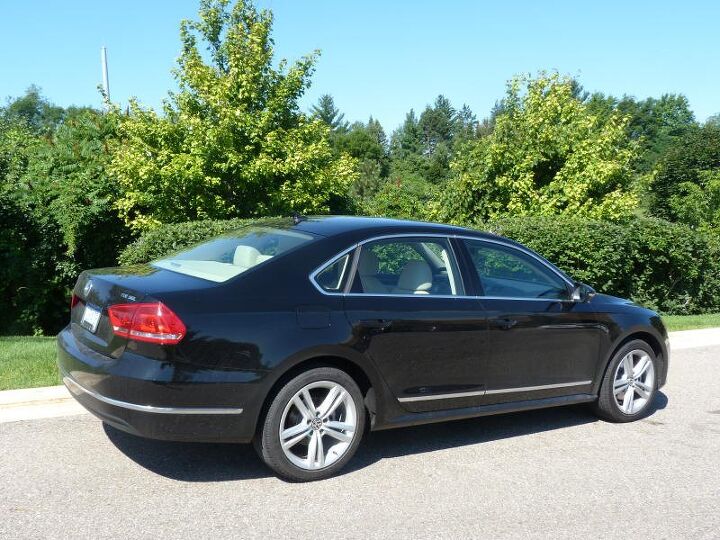New FIAT 500. New VW Passat. Which Is More Reliable?
A FIAT is available in the United States for the first time in decades. It’s manufactured in Mexico. Volkswagen has an all-new Passat built in an all-new American plant. One of them appears to be defying expectations of unreliability. Which one would you bet on?
We now have an early indicator. TrueDelta has updated the results of its Car Reliability Survey (on our totally redesigned site) to include owner experiences through the end of 2011. Others won’t cover the months since last April until next October.
Our sample sizes are small for both car models—twenty of each. But if the results are at one extreme or the other than a larger sample size would likely yield the same conclusion. And these are at the extremes.
A big surprise: the 2012 FIAT 500. With only a single repair reported for those twenty cars during 2011, and that one back in April, the 500 seems to be much more reliable than anyone expected, at least so far. The calculated stat: 16 repair trips per 100 cars per year. If this keeps up Tony’s going to be about as busy as the Maytag repairman.
Then there’s the new 2012 Volkswagen Passat. Its calculated statistic of 147 repair trips per 100 cars per year is about three times the average. If we had responses for another twenty cars, and somehow none of them required a repair, the stat still wouldn’t be pretty. So Chattanooga has a problem. Or perhaps that’s had a problem? Sometimes manufacturers catch and quash bugs quickly. Other times they don’t.
With the last update we provided such an early indicator for the Nissan LEAF. In the fourth quarter of 2011 the LEAF continued to be virtually fault-free, with no non-software repairs for 56 cars. We don’t count software updates as long as they’re free.
This has helped the 2012 Ford Focus. It remains about average in the updated stats (52 repair trips per 100 cars per year), but would fare considerably worse if SYNC updates counted.
And the redesigned 2012 Honda Civic? About as reliable as the FIAT!
We’ll see how Volkswagen has been doing with those bugs, and whether the 500 continues to have few problems, with the next update, in May. The more people participate, the more models we can cover and the more precise these results will be.
To view the updated repair trips per year stats for over 600 model / model year combinations:
Car Reliability Survey results
Come across something interesting? Have a question? Post it in the comments.
Michael Karesh lives in West Bloomfield, Michigan, with his wife and three children. In 2003 he received a Ph.D. from the University of Chicago. While in Chicago he worked at the National Opinion Research Center, a leader in the field of survey research. For his doctoral thesis, he spent a year-and-a-half inside an automaker studying how and how well it understood consumers when developing new products. While pursuing the degree he taught consumer behavior and product development at Oakland University. Since 1999, he has contributed auto reviews to Epinions, where he is currently one of two people in charge of the autos section. Since earning the degree he has continued to care for his children (school, gymnastics, tae-kwan-do...) and write reviews for Epinions and, more recently, The Truth About Cars while developing TrueDelta, a vehicle reliability and price comparison site.
More by Michael Karesh
Latest Car Reviews
Read moreLatest Product Reviews
Read moreRecent Comments
- D The only people who have TDS, which I assume is Trump Derangement Syndrome, are the MAGOTS who have been brainwashed to love him. They Know Not What They Do.
- The Oracle The updated Model Y beat this copy to market.
- ToolGuy™ I respect what the seller is doing, but this vehicle is not for me. (Seller doesn't care, has two people lined up already.)
- SCE to AUX How well does the rear camera work in the rain and snow?
- MaintenanceCosts The Truth About Isuzu Troopers!



































Comments
Join the conversation
1) Small-sample statistics is a highly developed field, especially in the sciences where experiments can be very expensive, e.g. clinical trials. Karesh needn't go it alone here (and likely doesn't) because there is a vast literature on the subject. Sure more is better (up to the limit of getting info on every car sold!) but small doesn't mean wholly non-representative. 2) Regarding older cars and reliability being largely based on the owner's maintenance habits and on non-OEM replacement parts: so what? Stats are stats: if a brand generally has more conscientious owners, and the replacement parts are better, then such brands will have older cars that will be in better shape. As a prospective buyer interested in only purchasing one car this is still valuable information to me.
The usefulness of statistics is generally relative to the uses to which they are put. It seems to me that statistics such as these can be useful, for example, as a measure of early trends for these specific vehicles, but they shouldn't be overextended (at least not in isolation) to try and justify any broader, more sweeping claims about the long-term reliability of those vehicles or about the brand or company in general.